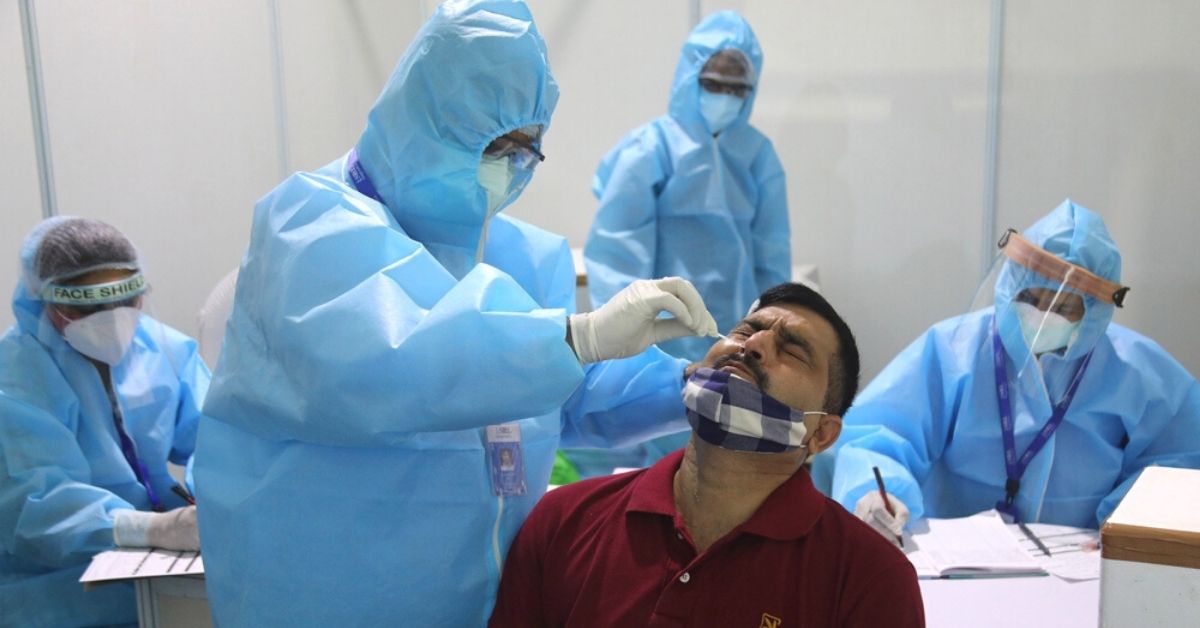An official statement by the Uttar Pradesh government has confirmed that two cases of the Kappa variant of COVID-19 have been recorded among the 109 samples tested at Lucknow’s King George medical college.
This is, however, not a new emergence. It has been present in the Indian population for a few months now, but wasn’t talked about much because the deadly ‘Double Mutant’ Delta was the dominant strain in circulation. Also, the Kappa variant has only recently been named by the World Health Organisation (WHO).
Another variant of COVID-19, the Lambda variant, is being closely monitored by the Indian SARS-CoV-2 Genomics Consortium (INSACOG), even though no cases of this variant have been reported in India yet.
Here’s what you should know about these two COVID-19 variants:
Kappa Variant

- The Kappa variant is also a double mutant and a sibling of the Delta variant.
- According to WHO, the Kappa variant was first detected in India in October 2020. It is identified as B.1.617.1, while Delta is represented as B.1.617.2.
- Designated on 4 April, the Kappa variant has been listed among ‘variants of interest’, and not ‘variants of concern’, by the WHO.
- This means that it is a “variant with genetic changes that are predicted or known to affect virus characteristics such as transmissibility, disease severity, immune escape, diagnostic or therapeutic escape”. It should be noted that “variant of concern” signifies that it is a far bigger threat as per WHO.
- There have been concerns that the Kappa variant’s antibody-neutralising double mutations may reduce vaccine effectiveness as well as the natural immunity generated from the COVID infection.
- However, as per a study published in June, both Pfizer and AstraZeneca’s vaccines were found to be broadly effective against the Kappa variant.
Lambda Variant

- The newest variant of coronavirus, Lambda, originated in Peru in August 2020. Its earliest documented sample was in December 2020.
- It has spread to 31 countries so far, including the UK and USA, as well as many countries in South America.
- Seven mutations have been seen in the Lambda variant’s spike protein. One of these mutations, L452Q, may make it more infectious (it’s similar to the L452R mutation of the Delta variant that made it more virulent).
- According to the WHO, the Lambda variant may have higher transmissibility and increased vaccine resistance due to its unusual mutations. The strain may also be able to evade the body’s immune response.
- As per the limited number of studies done so far on the Lambda variant, existing mRNA vaccines have the capability to neutralise it. However, more studies are needed to confirm the effectiveness of vaccines against it.
No comments:
Post a Comment